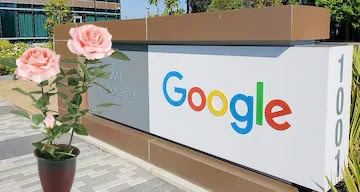Google At 20: The Company's Journey From Start-Up To Internet Giant
Google At 20: The Company's Journey From Start-Up To Internet Giant
Google is a well-known name in the tech industry, with an immense and enviable reputation. With roots going back to 1996, it has taken the world by storm over the last two decades. In this article, we'll take a look at Google's history from its beginnings as a start-up to its current status as one of the most recognized and influential companies in the world.
Google's Beginnings
students at Stanford University in California. Together, they own about 14 percent of Google's shares and control 56 percent of the stockholder voting power through supervoting stock. startups. The next year, already outgrowing that space, the company leased a complex of buildings in Mountain View consisting of 11 acres (4.5 ha). That same year Page and Brin decided that the search engine they had developed was good enough to be commercialized—and so began their journey as entrepreneurs.
In 1996, Brin and Page had come up with a new way to rank web pages called "PageRank." Instead of using citation analysis like most other search engines at the time (a method that looks at how often a site is linked to by other sites), PageRank looked at how important the site being linked to is. This innovation helped them create a better search engine than existing ones like AltaVista and Excite.
In 1998, two graduate students at Stanford University, Larry Page and Sergey Brin, developed a new way to rank web pages. They called their algorithm "PageRank," and it quickly became the core component of what would become Google's search engine.
In the early days of the internet, there were very few webpages. And so, when Page and Brin began working on their PageRank algorithm, they had a very small set of data to work with. But they persevered, and by the time Google launched in September 1998, they had a robust ranking system that could handle the growing number of webpages being created every day.
Google's simple homepage design belied the sophisticated technology powering its search engine. And that technology was about to be put to the test as the internet began to explode in popularity in the late 1990s and early 2000s.
As more and more people started using Google to find information online, the company had to rapidly scale its infrastructure to keep up with demand. It was a challenging period for Google, but it also laid the foundation for the company's incredible growth over the next two decades.
The Success of Google Search
Over the past two decades, Google has become one of the world’s most powerful companies. This is largely due to the success of their search engine, which has become the go-to source for billions of people around the globe looking for information on the internet.
Google’s search engine is so successful because it is able to provide relevant and useful results to users thanks to its sophisticated algorithms. These algorithms take into account a number of factors, including the user’s location, what they have searched for in the past, and the popularity of certain websites.
While other search engines exist, none are as effective as Google’s, which is why the company continues to dominate the market. In addition to being an essential tool for individuals, Google Search is also vital for businesses looking to reach new customers online.
Google's Ad Services
Google’s ad services are the company’s primary source of revenue. Google AdWords is the biggest and most popular advertising service, allowing businesses to place ads on Google search results pages. AdSense is another important service, placing ads on third-party websites. Together, these two services generated 96% of Google’s $32.2 billion in ad revenue in 2015.
Google has continued to grow its ad business despite challenges from competitors like Facebook and Amazon. In fact, Google’s ad revenue increased by 21% in 2016. This growth is due to a number of factors, including the shift to mobile devices (which now account for 60% of Google searches), the increasing use of video content, and the growing popularity of shopping ads.
As digital advertising continues to grow, Google is well positioned to maintain its leading position. The company is constantly innovating its ad products and services, giving advertisers more ways to reach their target audiences. And with billions of people using its various products every day, there’s no shortage of potential customers for advertisers to reach.
Gmail and Other Applications
When Google first started out, they offered a single search engine. But soon they began to expand their offerings. They developed Gmail, which has become one of the most popular email services, and Google Docs, a suite of productivity tools. They also acquired YouTube, which is now the world’s largest video-sharing site.
But Google didn’t just stop there – they continued to develop new products and acquire other companies. Some of their most popular products include Android (their mobile operating system), Chrome (their web browser), and Google Maps.
The Future of Google
In recent years, Google has faced increased scrutiny from both regulators and the public. The company has been accused of monopoly practices, and its privacy policies have come under fire. Despite these challenges, Google remains one of the most powerful and influential companies in the world.
Looking to the future, it is likely that Google will continue to dominate the search engine market. However, the company will need to navigate the ever-changing landscape of technology and consumer behavior. In addition, Google must contend with a new wave of antitrust regulation that could limit its power and influence.
Despite these challenges, there is no doubt that Google will remain a major force in the tech industry for years to come.






.jpg)









No comments